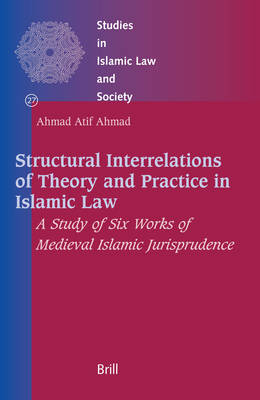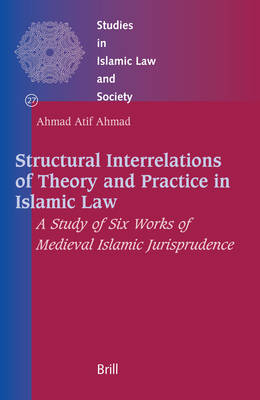
- Afhalen na 1 uur in een winkel met voorraad
- Gratis thuislevering in België vanaf € 30
- Ruim aanbod met 7 miljoen producten
- Afhalen na 1 uur in een winkel met voorraad
- Gratis thuislevering in België vanaf € 30
- Ruim aanbod met 7 miljoen producten
Zoeken
Structural Interrelations of Theory and Practice in Islamic Law
A Study of Six Works of Medieval Islamic Jurisprudence
Ahmad Atif Ahmad
€ 248,95
+ 497 punten
Omschrijving
This volume introduces six texts of Islamic jurisprudence, authored by six jurists representing all four Sunni schools of Islamic law (two Ḥanafī, two Shāfiʿī, one Malikī, and one Ḥanbalī), who lived in areas as far apart as Uzbekistan, Iraq, Syria, Gaza (Palestine), Egypt, and Algeria between the tenth and sixteenth centuries CE. My reading of these texts attempts to articulate an underlying structural interrelationship between theoretical and practical legal reasoning in the Islamic juristic tradition. This volume provides an anatomy of Islamic legal reasoning, centered on the basic concepts of human agency, responsibility, rights, legal hermeneutics, extra-textual sources of the law, and basic inquiries, such as the jurisdiction of law in Islam and the relationship between law and government and between law and theology.
Specificaties
Betrokkenen
- Auteur(s):
- Uitgeverij:
Inhoud
- Aantal bladzijden:
- 234
- Taal:
- Engels
- Reeks:
- Reeksnummer:
- nr. 27
Eigenschappen
- Productcode (EAN):
- 9789004150317
- Verschijningsdatum:
- 15/05/2006
- Uitvoering:
- Hardcover
- Formaat:
- Genaaid
- Afmetingen:
- 164 mm x 246 mm
- Gewicht:
- 576 g

Alleen bij Standaard Boekhandel
+ 497 punten op je klantenkaart van Standaard Boekhandel
Beoordelingen
We publiceren alleen reviews die voldoen aan de voorwaarden voor reviews. Bekijk onze voorwaarden voor reviews.








